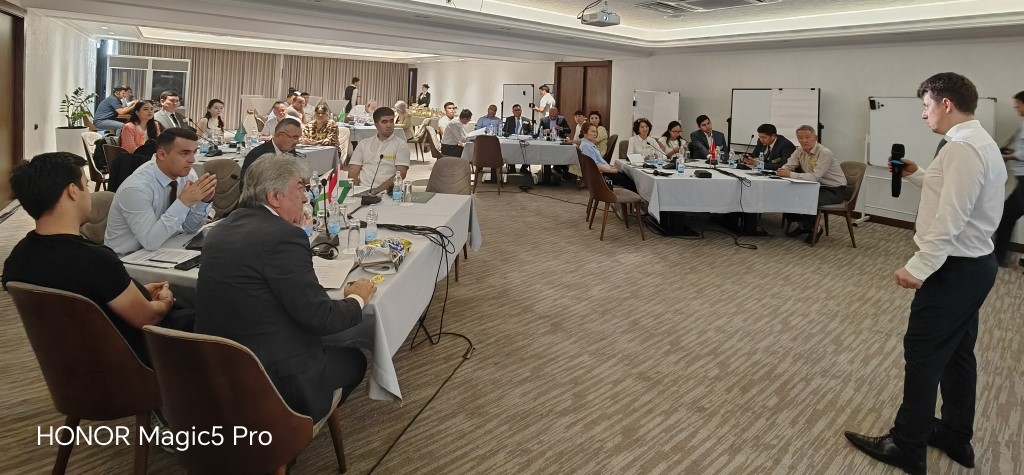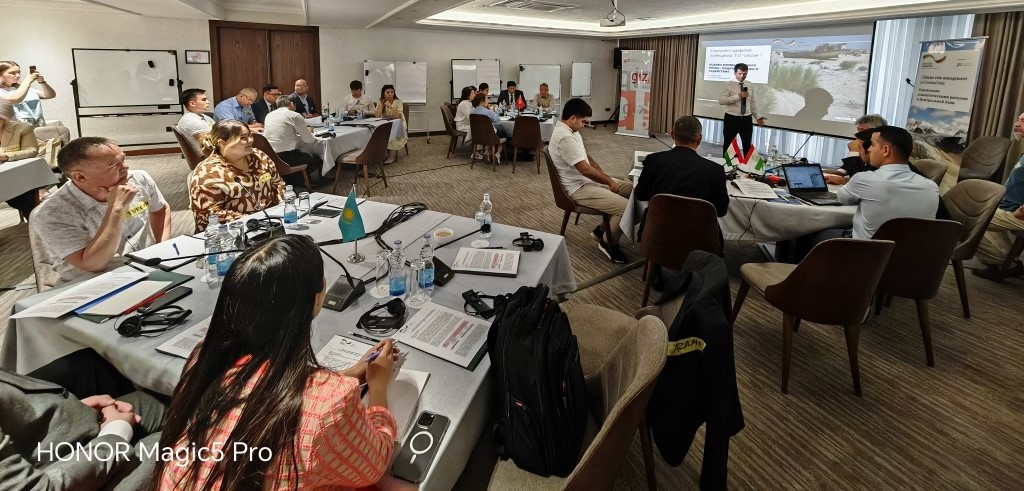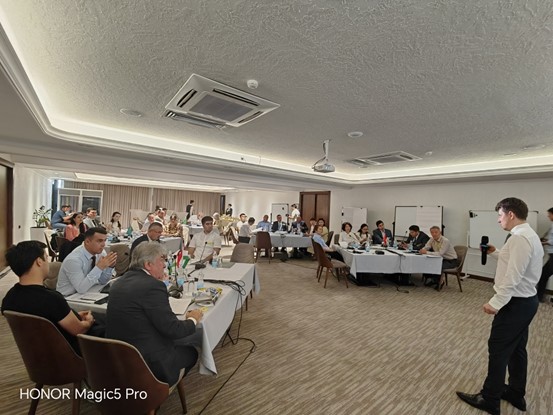ToT SESSION 1.0 “Climate Risk Assessment – Approach, Methods and Facilitation” was held in Tashkent on June 4-6, 2024.
Within the framework of Work Package 6 “Capacity Development and Strengthening”, training for trainers (ToT) in selected five (5) CRA (watershed) areas is being developed and delivered, including the development of ToT training materials, the delivery of ToT workshops, and online coaching support for trained trainers. Work Package 6 also includes an assessment of how trained trainers have used their new skills to support the incorporation of risk reduction measures into river basin management plans for each of the five watersheds.
The main strategy is to develop the capacity of selected trainers who will ensure the sustainability of the results of the GIZ regional project “Climate Risk Management in Central Asia” within the framework of the “Train the Trainers” concept. Such an approach will facilitate the ongoing review and future development of adaptation plans that take into account the impact of climate change on planned development activities and actions.
Development and capacity-building measures encompass the scoping, identification, analysis and assessment of climate risks, as well as the identification of climate-related risk reduction measures in the context of development plans.
“The Regional Environmental Center for Central Asia, represented by country experts, provides mainly consulting support and facilitates national delegations of trainers. The expected result is that the trained trainers will understand the standardized climate risk assessment process and the application of the phased CRA process presented in the GIZ Climate Risk Handbook, as well as have improved facilitation skills, including gender, inclusiveness and equality throughout the stakeholder engagement process,” said Azamat Kauazov, Coordinator of the Central Asia Climate Information Platform (CACIP) of CAREC.
“The overall expected result of capacity development activities is that authorities from the basin to the regional level can develop and implement development plans that systematically increase resilience to natural disasters and climate risks, which can contribute to transboundary coordination,” Azamat Kauazov summed up.



